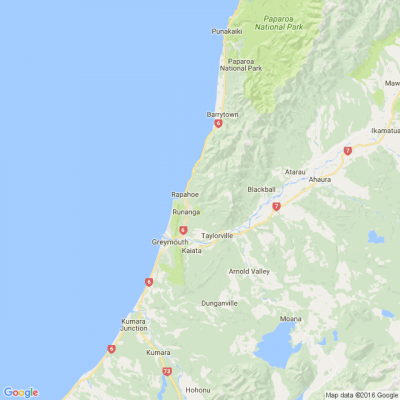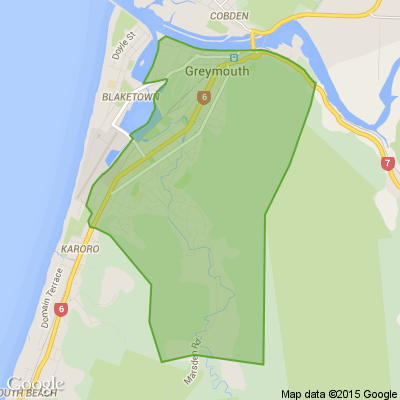
Know what’s happening
Access the private noticeboard for verified neighbours near you. Keep informed about any suspicious activity, send urgent updates to your neighbours when required and discuss emergency planning.
Get to know your neighbours
Browse the directory and start getting to know your neighbours. Don’t want to post to the whole neighbourhood? Send a private message.
Buy, sell and give away
Want to declutter your garage? Buy some used household items? Give away some garden stuff? Become a verified neighbour to browse and post items for sale. Trading is simple when everyone lives nearby.



Thank you for using Neighbourly
You may receive an email confirmation for any offer you selected. The associated companies will contact you directly to activate your requests.
Give the gift that keeps on giving this Christmas. NZ House & Garden magazine is your go-to inspiration for interiors, homes, and gardens, plus find sumptuous food that’ll make your mouth water and curated lifestyle features sure to impress.
This Christmas, gift or purchase a 1-year NZ … View moreGive the gift that keeps on giving this Christmas. NZ House & Garden magazine is your go-to inspiration for interiors, homes, and gardens, plus find sumptuous food that’ll make your mouth water and curated lifestyle features sure to impress.
This Christmas, gift or purchase a 1-year NZ House & Garden subscription for only $85 and save yourself $47, plus you’ll get the added benefit of home delivery every month!
The team at NZ House & Garden
Find out more

Snap up a subscription to NZ’s best selling weekly entertainment magazine - the perfect gift for the TV enthusiast in your life. Each week, receive the latest entertainment, competitions, puzzles and an extensive listing guide. You’ll never miss out on the best of TV with a home-delivered … View moreSnap up a subscription to NZ’s best selling weekly entertainment magazine - the perfect gift for the TV enthusiast in your life. Each week, receive the latest entertainment, competitions, puzzles and an extensive listing guide. You’ll never miss out on the best of TV with a home-delivered subscription to The TV Guide.
This Christmas, gift or purchase a 1-year TV Guide subscription for only $99, saving you $67!
The team at The TV Guide
Find out more

The Team from NZ Compare
What an incredible Black Friday it's been! We received a whopping 460 responses from all you savvy shoppers who shared your best deals for a chance to WIN a $200 Prezzy Card!
Now, the moment you've been waiting for – did you strike gold as the lucky winner? Find out right here: … View moreWhat an incredible Black Friday it's been! We received a whopping 460 responses from all you savvy shoppers who shared your best deals for a chance to WIN a $200 Prezzy Card!
Now, the moment you've been waiting for – did you strike gold as the lucky winner? Find out right here: www.nzcompare.com...
Didn't score the big win this time? No worries! Follow NZ Compare to stay in the loop about future competitions, deals, and shopping tips! We're here to brighten up your budget. CLICK below to explore more.

The Team from Neighbourly.co.nz
This week's Nice Neighbours are Matt, Amelie and Jireh Rudich of Papakura. They were nominated by Yolanda Schuller.
On Yolanda's birthday, her husband had a major heart attack. They had an entire day planned, but then life threw a spanner into the works.
Yolanda asked Amelie to feed… View moreThis week's Nice Neighbours are Matt, Amelie and Jireh Rudich of Papakura. They were nominated by Yolanda Schuller.
On Yolanda's birthday, her husband had a major heart attack. They had an entire day planned, but then life threw a spanner into the works.
Yolanda asked Amelie to feed her cat, Koda, but Amelie's family went over and above. They cooked dinners two nights in a row and sent yummy treats during the tough time.
“I was really touched by their love, prayers and generosity. They are amazing. I couldn’t wish for better neighbours,” said Yolanda.
Nominate a Nice Neighbour you know, and they could be recognized on Stuff (and you both win a prize!).

With Christmas Box, your $40 donation turns into $70 worth of everyday essential food and treats to help those who need it most across Aotearoa this Christmas.
100% of donations go to not only feeding a family but will also provide much-needed hope.
Donate $40 today and bring hope to the … View moreWith Christmas Box, your $40 donation turns into $70 worth of everyday essential food and treats to help those who need it most across Aotearoa this Christmas.
100% of donations go to not only feeding a family but will also provide much-needed hope.
Donate $40 today and bring hope to the table.
Donate Now

The Team from Neighbourly.co.nz
We've finally got news of the government for the next three years. Are you feeling confident that this coalition can improve Aotearoa?
Type 'Not For Print' if you wish your comments to be excluded from the Conversations column of your local paper.

228 replies (Members only)
Hundreds of Christmas-ready pets were shared last year - and we're keen to see them again!
Whether it's your cat tangled in tinsel or your pooch by a pile of pressies, share a festive photo of your furry friend and you could be in to win a $100 Prezzy® card.
All pets are welcome … View moreHundreds of Christmas-ready pets were shared last year - and we're keen to see them again!
Whether it's your cat tangled in tinsel or your pooch by a pile of pressies, share a festive photo of your furry friend and you could be in to win a $100 Prezzy® card.
All pets are welcome - Santa paws, claws, beaks, and squeaks. And if you don’t have a pet, that’s fine; we’d love to see festive snaps from around your neighbourhood too.
This is one of Neighbourly member's favourite campaigns so get involved and show your neighbours how adorable your Christmas pet is! Enter now.
Competition closes 21 December 2023 - winners announced early 2024!
Enter your pet now

Nicole Mathewson Reporter from The Press
By local democracy reporter Brendon McMahon:
Staff are being redeployed and projects paused at a West Coast council as a raft of reforms are potentially ditched.
Officials at the West Coast Regional Council have welcomed the new Government's promise to roll back planned environmental … View moreBy local democracy reporter Brendon McMahon:
Staff are being redeployed and projects paused at a West Coast council as a raft of reforms are potentially ditched.
Officials at the West Coast Regional Council have welcomed the new Government's promise to roll back planned environmental legislation and allow for "sensitive" mining.
West Coast Regional Council chief executive Darryl Lew said he was already redirecting staff as a result of the change in Government.
"I am either slowing down or stopping a lot of our work in anticipation ... I'm going to be very judicious how I apply council's limited resources at the moment," he said.
Specifically, he welcomed the promise to end Resource Management Act reforms.
"I'm not going to put any resources into them at the moment".
The Labour-led Government reforms had created a significant workload for regional councils, he said.
The new Government wants to scrap a number of policies, including Resource Management Act reforms and the Significant Natural Area (SNA) provision, which has proved controversial on the West Coast.
The former Government brought in the provisions for SNAs before the election. SNAs are areas home to native plants and/or animals, and require a higher level of protection.
National leader Christopher Luxon has also signalled he is open to allowing greater mining if it can be done in a "sensitive" way to balance economic and environmental interests.
Resource Management Committee chairperson Brett Cummings said he was pleased the new Government has promised to revise current policy directions.
"The farm plans and the freshwater [policy] - that was going to be the biggest impediment for the West Coast."
Cummings said the new Government aligned with how the region felt about the impact of environmental legislation on the region's economy.
However, he acknowledged some would oppose an approach that may allow for more mining on the West Coast.
"I know there is going to be a lot of push back."
Forest and Bird West Coast branch chairperson Suzanne Hills said the region's unique environment would bear a direct cost due to the new Government's direction.
"We're really concerned because we're all about giving a voice to nature -- and the environment is an integral part of the West Coast - Poutini. The environment is our greatest asset."
However, West Coast Regional Council chairperson Peter Haddock welcomed the direction of the new Government.
Haddock said councils had been grappling with how to shoulder the cost of new environmental legislative requirements.
In particular, he said the pullback on implementing the SNA provisions would be significant.
"It will be a heck of a lot of a saving to our ratepayers because at the end of the day it costs to review (SNAs)."
The change would bring much needed relief for the stretched regional council sector, he said.
"Things have happened way too quickly and there hasn't been enough time for proper consultation. [But] the devil will be in the detail".
Ernest Rutherford Retirement Village
From rehabilitation after a hospital stay, to a little extra support, whether it’s for a few nights or a few weeks - respite care provides temporary care in a range of circumstances.
Ryman’s respite care is offered at resthome-level and, in most villages, hospital and specialist dementia … View moreFrom rehabilitation after a hospital stay, to a little extra support, whether it’s for a few nights or a few weeks - respite care provides temporary care in a range of circumstances.
Ryman’s respite care is offered at resthome-level and, in most villages, hospital and specialist dementia care. We also offer respite care in the comfort of an assisted-living apartment.
We’ve been providing industry-leading care for over 35 years, it's what we do best.

The Team from NZ Compare
Black Friday Special: Uncover great deals & a chance to WIN a $200 Prezzy Card!
Here's the #1 must-buy recommended by YOU: Home & Garden. Uncover the top 10 anticipated must-have products for Black Friday 2023 HERE: www.priceme.co.nz...
And don't forget to enter our … View moreBlack Friday Special: Uncover great deals & a chance to WIN a $200 Prezzy Card!
Here's the #1 must-buy recommended by YOU: Home & Garden. Uncover the top 10 anticipated must-have products for Black Friday 2023 HERE: www.priceme.co.nz...
And don't forget to enter our giveaway for a shot at a $200 Prezzy Card: www.nzcompare.com...
Act fast, it all wraps up on 29/11/2023!

As the sunny days get longer and more frequent, it’s the perfect time to get stuck into the garden. Grab a subscription to NZ Gardener and get a Free Vege Patch from Scratch book written by NZ Gardener’s editor Jo McCarroll worth $44.99.
Make your garden one of the best in the neighbourhood … View moreAs the sunny days get longer and more frequent, it’s the perfect time to get stuck into the garden. Grab a subscription to NZ Gardener and get a Free Vege Patch from Scratch book written by NZ Gardener’s editor Jo McCarroll worth $44.99.
Make your garden one of the best in the neighbourhood this summer with the help of a monthly NZ Gardener subscription and Vege Patch from Scratch. Purchase a subscription today at Mags4Gifts.co.nz to receive your free book. T&Cs apply.
Find out more

The Team from Heart Foundation NZ
Being heart-healthy isn't just for grown-ups. Kiwis of all ages will benefit from eating a diet rich in fruit and veggies. However, getting veggies into children can sometimes be a small challenge, but who says you need to tell them? Our kid-friendly recipes helpfully hide the good stuff with … View moreBeing heart-healthy isn't just for grown-ups. Kiwis of all ages will benefit from eating a diet rich in fruit and veggies. However, getting veggies into children can sometimes be a small challenge, but who says you need to tell them? Our kid-friendly recipes helpfully hide the good stuff with a healthy spin on a classic dish. Click the link to check out our version of Mac n' Cheese!

42 replies (Members only)
The Team from Neighbourly.co.nz
This hardy dessert has stood the test of time but is it time for a new dessert to step into the (Christmas) light? Share your vote, and tell us what kiwi classic you'd put in its place.
Type 'Not For Print' if you wish your comments to be excluded from the Conversations column of … View moreThis hardy dessert has stood the test of time but is it time for a new dessert to step into the (Christmas) light? Share your vote, and tell us what kiwi classic you'd put in its place.
Type 'Not For Print' if you wish your comments to be excluded from the Conversations column of your local paper.

127 replies (Members only)
For as little as $61, unwrap thought-provoking articles, entertainment and adventure every Sunday!
Purchase a subscription to Sunday Star-Times via mags4gifts.co.nz before December 25 and receive a free Linden Leaves diffuser worth $40.
For more information visit mags4gifts.co.nz/sstchristmas… View moreFor as little as $61, unwrap thought-provoking articles, entertainment and adventure every Sunday!
Purchase a subscription to Sunday Star-Times via mags4gifts.co.nz before December 25 and receive a free Linden Leaves diffuser worth $40.
For more information visit mags4gifts.co.nz/sstchristmas
Happy Shopping! The team at Sunday Star-Times
Find out more

The Team from Neighbourly.co.nz
The winners of the $100 restaurant vouchers are:
James Nelson of Lyal Bay
Shirleyann Gray of Parklands
Fung Yo of Flat Bush
… View moreThe winners of the $100 restaurant vouchers are:
James Nelson of Lyal Bay
Shirleyann Gray of Parklands
Fung Yo of Flat Bush
Tipene Atama of Hamilton
Winners, you can claim your prize here before the 28th of November. Enjoy!

 Loading…
Loading…
Are you sure? Deleting this message permanently removes it from the Neighbourly website.
 Loading…
Loading…
© Neighbourly 2026
